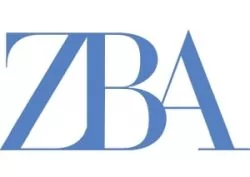In an attempt to modernize Indian admiralty law and align it with the Arrest Conventions, parliament enacted the Admiralty (Jurisdiction and Settlement of Maritime Claims) Act, 2017 ("Act"). The Act came into force recently on 1 April 2018. The Act is well intentioned but has many errors and omissions. Several provisions of the Act depart from the Arrest Conventions without any discernible reason, causing one to question whether the draftsman properly understood the subject and correctly identified India's needs as a receiver of cargo shipped aboard foreign bottoms. The baton has therefore passed on to the courts to interpret and make what they can of the Act.
The Bombay High Court in a recent judgement viz, Siem Offshore Redri AS v. Altus Uber decided on 25 September 2018, despite being faced with the unenviable task of interpreting legislation that was not happily enacted, adopted a commercially pragmatic and progressive approach to arrest of ships in India. The Bombay High Court ruled that a claimant could arrest a ship in India as security for its claim in arbitration without having to submit to a merits hearing in India. But more controversially, upheld the arrest of a demise-chartered ship for a claim against another ship that was bare boat chartered by the same demise charterer.
Background
The Claimant had entered into a bareboat charter party with Marine Engineering Diving Services ("MEDS") for a vessel called Siem Marlin. MEDS allegedly breached the demise charter. The Claimant commenced arbitration in London for recovery of its claim against MEDS. Pending determination of its claim in the London arbitration, the claimant sought and obtained the arrest of a vessel Altus Uber in India on the ground that MEDS was either the owner or demise charterer of both vessels. MEDS entered appearance under protest in the Bombay High Court and contended that: i) a security arrest was impermissible under the Act and ii) in any event, it was not the owner of the Altus Uber. MEDS claimed to be the demise charterer of Altus Uber and contended that the vessel could not be arrested on this score as well.
Arrest pending arbitration
The Bombay High Court in a well-reasoned judgement held it was permissible for a claimant to legitimately obtain a security arrest in India. And that whilst the Act was silent and did not expressly make provision for this, it did not prohibit an order for security pending arbitration.
According to the Court, in personam and in rem proceedings, were cumulative and not alternative. Arbitration being an in personam proceeding did not bar commencement of an action in rem. The Court ruled that a claimant had a statutory right to initiate in rem proceedings under the Act that could not be denied to a claimant who otherwise had a valid maritime claim.
Arrest of a non-offending demise-chartered vessel in circumstances where there is a common demise charterer.
Under Article 3 (2) of the Arrest Convention a ship (other than the demise-chartered ship) that is owned by a demise charterer can be arrested for claims against the demise charterer. But, any other ship that is demise chartered by the demise charterer, is immune from arrest. The philosophy of this provision is to ensure that only the asset of the debtor can be seized and not that of a third party.
The Bombay High Court upheld the arrest of the Altus Uber which was another vessel demise chartered by MEDS, but did so because the Act expressly permits such an arrest. This result is attributable to Section 5 (2) of the Act, which legislatively endorses such an arrest and imposes liability on an innocent third-party owner of a vessel that has been demise chartered to a demise charter against whom a maritime claim exists.
Conclusion
The upshot of the above discussion is that the Bombay High Court ruling presents interesting opportunities for forum shopping by claimants. It remains to be seen whether the appeal court shares the same view as the court of first instance. Either way, the Act has unnecessarily caused much anxiety to demise chartered vessels trading in Indian waters.
Posted on 09 October 2018 by Zarir Bharucha
The above is a generic analysis and should not be regarded as a substitute for specific advice based on the facts of a client's objectives and specific commercial agreements reached. Please do reach out to us at mail@zba.co.in for any queries.

